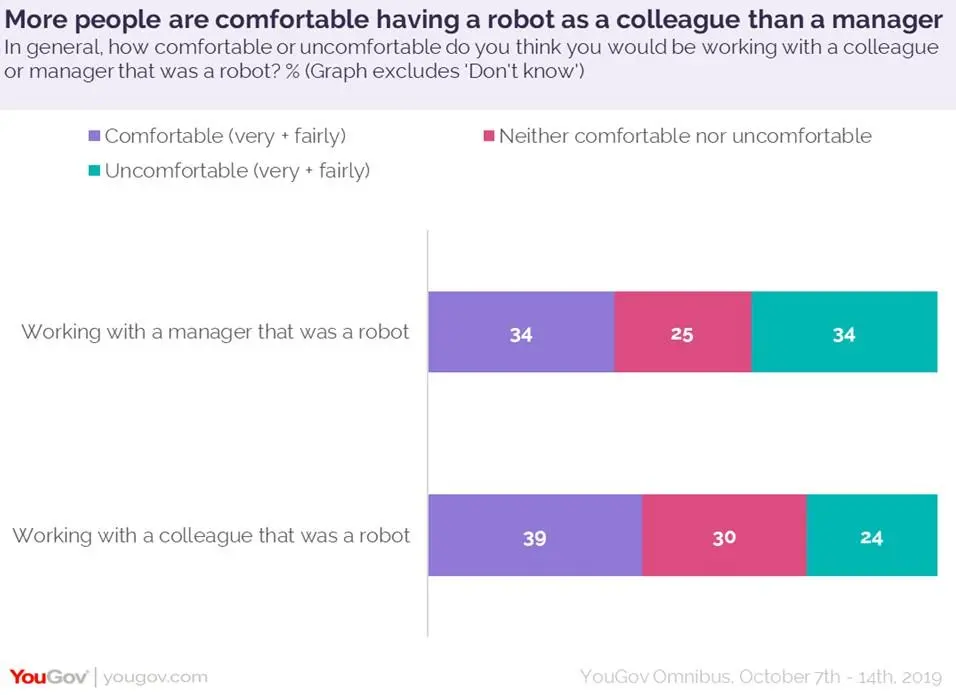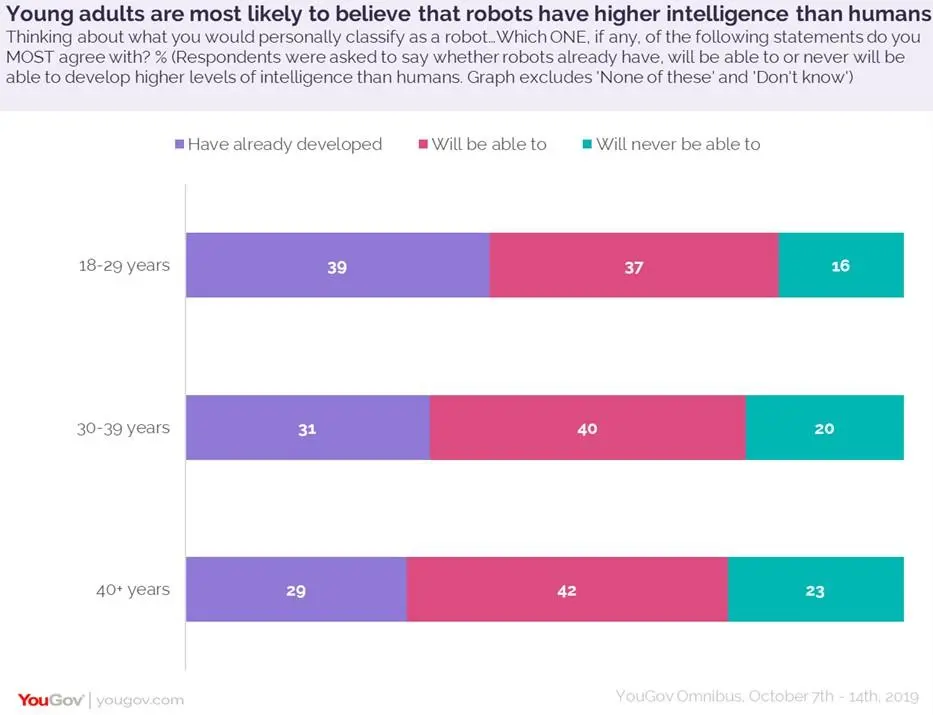As Dubai hosts one of the biggest festivals in robotics and artificial intelligence- ‘2019 FIRST Global DXB Challenge’ from today, new YouGov research reveals UAE resident’s views on life with robots and shows that people in the UAE are much more uncomfortable having a robot as a boss than a colleague.
When asked how they would feel about working with a robot, a quarter (24%) said they would be uncomfortable about having one as a co-worker, a figure that rises to more than a third (34%) when it comes to having one as a manager. The data also reveals that people are also more comfortable about the idea of a robot co-worker (39%) than a robot boss (34).


Men are more comfortable than women in sharing a professional life with robots – both as colleagues (44% men vs 31% women) and having them as their superior (38% vs 26%).
There is more optimism among UAE residents about sharing a personal life with robots, with three in five (60%) saying they can imagine befriending a robot in the future.
However, few UAE residents think robots have developed enough emotional capabilities to form relationships with humans. Just one in six (16%) think robots have already developed such capacities, compared to three in ten (31%) who believe they will do so in the future. Two in five (41%) reckon robots will never be able to develop emotional capabilities advanced enough to replace human relationships.
When it comes to intelligence, a third of UAE residents (34%) believe robots have already overtaken humans in terms of intelligence, while four in ten (39%) think they will do so in time. Only a fifth (19%) doubt that robots will ever be more intelligent than humans. Young adults between 18-29 years of age are the group most likely to think robots have already developed higher intelligence than humans (39%), compared to around three in ten of those in their thirties (31%) and aged 40 and above (29%).


YouGov’s research reveals people in the UAE are divided on what constitutes a robot. More than half believe machines ‘capable of providing companionship’ – digital assistants such as Alexa, iPhone Siri, etc. (56%), alongside ‘machine automation- inventions like driverless cars, automatic vacuum cleaners (53%) are robots. However, nearing two in five (38%) would classify ‘machine-assisted technology’ – such as a self-checkout machine, or ATMs as robots, and almost as many (36%) would categorise ‘machines capable of taking non-verbal commands such as GPS’– as robots.
Data collected online by YouGov Omnibus among 1003 respondents in the UAE between 7th and 14th October 2019 using YouGov’s panel of over 6 million people worldwide. Data is representative of the adult online population in the country
© Press Release 2019Disclaimer: The contents of this press release was provided from an external third party provider. This website is not responsible for, and does not control, such external content. This content is provided on an “as is” and “as available” basis and has not been edited in any way. Neither this website nor our affiliates guarantee the accuracy of or endorse the views or opinions expressed in this press release.
The press release is provided for informational purposes only. The content does not provide tax, legal or investment advice or opinion regarding the suitability, value or profitability of any particular security, portfolio or investment strategy. Neither this website nor our affiliates shall be liable for any errors or inaccuracies in the content, or for any actions taken by you in reliance thereon. You expressly agree that your use of the information within this article is at your sole risk.
To the fullest extent permitted by applicable law, this website, its parent company, its subsidiaries, its affiliates and the respective shareholders, directors, officers, employees, agents, advertisers, content providers and licensors will not be liable (jointly or severally) to you for any direct, indirect, consequential, special, incidental, punitive or exemplary damages, including without limitation, lost profits, lost savings and lost revenues, whether in negligence, tort, contract or any other theory of liability, even if the parties have been advised of the possibility or could have foreseen any such damages.



















